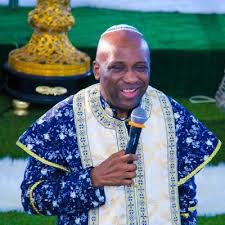Politics
Breaking: Australia election: conservative government voted out after nearly a decade
Anthony Albanese’s Labor party defeats the ruling Coalition, but may lack the numbers to form majority government.
Australia’s rightwing Coalition government has lost power after nearly a decade in office, with Saturday’s election showing a sharp shift to progressive parties that will result in a Labor government under Anthony Albanese – though he may need the support of climate-focused independents or the Greens.
The Liberal party leader, Scott Morrison, conceded defeat just before 11pm AEST on Saturday, and announced he would step down as leader of his party.
“We’ve seen in our own politics a great deal of disruption as the people have voted today with major parties having one of the lowest primary votes we’ve ever seen,” Morrison told supporters at his election night reception in Sydney.
“I know about the upheaval that’s taking place in our nation. And I think it is important for our nation to heal and to move forward,” Morrison said.
While the Liberal-National coalition lost seats to Labor, independents and Greens, the Labor opposition failed to sweep to power in its own right, winning just 31.8% of the primary vote when counting stopped for the night at midnight on Saturday. It was not apparent it could win a majority of seats to be able to claim victory – which would have been its first since 2007.
The Labor leader, Anthony Albanese, will be the new prime minister, but it remains to be seen whether he will need the support of independent or minor party MPs, who may have won as many as 16 seats between them.
Albanese told his supporters in Sydney his government would be “as courageous and hard working and caring as the Australian people”.
“I want to find that common ground where together we can plant our dreams. To unite around our shared love of this country, our shared faith in Australia’s future, our shared values of fairness and opportunity, and hard work and kindness to those in need,” Albanese said.
The biggest surprise of the night was the surge in support for the Greens. By Saturday evening, the party – which has struggled to win more than the one seat it first picked up more than a decade ago – was on track to win as many as three more, all in progressive areas of Brisbane. It also looked likely to increase its strength in the upper house, the Senate, which may also have a rare progressive majority composed of Labor, the Greens and the former Australian rugby union captain and environmental activist David Pocock, who was on course to win one of the two Senate seats in the Australian Capital Territory.
While both major parties were at pains throughout the campaign not to appear overly ambitious on climate action, the legacy of recent natural disasters across several states, including deadly bushfires and floods, appear to have resonated with many voters.
Labor’s target of cutting emissions by 43% by 2030 was more ambitious than the Coalition’s goal of a 26-28% reduction, but less than what the independents and Greens were demanding, and below what scientists claimed was needed.
However when declaring victory on Saturday evening, Albanese said “together we can end the climate wars”, and said Australia can be a “renewable energy superpower”.
“Together we can work in common interests with business and unions to drive productivity, lift wages and profits. I want an economy that works for people, not the other way around,” Albanese said.
Morrison’s Coalition appeared to have lost several seats to the “teal independents” – candidates running in traditionally safe inner-city Liberal party seats on a strong climate action platform, some backed by substantial funds from the Climate 200 organisation.
Many adopted the colour teal, nodding both to the traditional Liberal blue and their green credentials, and performed well in seats in affluent parts of Melbourne and Sydney.


 News20 hours ago
News20 hours agoNIGERIAN BREWERIES PARTNERS OZA CARNIVAL

 Top Stories8 hours ago
Top Stories8 hours agoTinubu’s Aide Condemns Plan To Reinstall ‘Jesus Is Not God’ Banner In Lekki Mosque

 Top Stories3 hours ago
Top Stories3 hours agoBreaking: FIRS Announces Fresh Recruitment, See Eligibility Criteria, Application Deadline

 News8 hours ago
News8 hours agoPetrol To Sell ₦935/Litre From Today – IPMAN

 Top Stories9 hours ago
Top Stories9 hours ago2025 Budget Cannot Address Nigeria’s Economic Challenges – Atiku

 News8 hours ago
News8 hours agoPresident Tinubu’s reforms not responsible for food stampedes – FG

 Entertainment8 hours ago
Entertainment8 hours agoI will be more influential in Nigeria than UK – Tobi Adegboyega

 Top Stories5 hours ago
Top Stories5 hours agoPrimate Ayodele’s Prophecies For 2025







